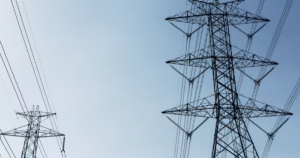🕵️♂️ By Prashant Marathe | May 19, 2025 | EduInvesting.in
📌 At a Glance:
The Reserve Bank of India (RBI) has officially cancelled the banking licence of HCBL Co-operative Bank Ltd., Lucknow, with effect from the close of business on May 19, 2025. The primary reason? Poor financial health, regulatory non-compliance, and danger to public interest. Depositors will get up to ₹5 lakh from DICGC insurance. Over 98.69% of the bank’s depositors are fully covered.
🏦 Why Did RBI Bring the Hammer Down?
Think of this as the RBI’s version of saying: “It’s not us, it’s your balance sheet.” Here’s the hard truth:
- No capital, no future: The bank didn’t have adequate capital and had no real earning prospects.
- Regulatory mess: It failed to comply with five different subsections under Section 22(3) of the Banking Regulation Act.
- Depositor danger: The bank’s continuation posed a threat to its own depositors. Ouch.
- Insolvency issues: The bank couldn’t pay its existing depositors in full. This is the financial equivalent of “bhaiya udhaar toh band ho gaya.”
- Public interest threat: Letting the bank function further would have been bad for public faith in the banking system.
So, in short: the ship was sinking, and RBI wasn’t going to wait for it to hit the ocean floor.
🧾 Official Language, Translated to Human Speak:
“The bank ceases to carry on banking business with effect from the close of business on May 19, 2025.”
Translation: It’s game over.
📉 What Happens to Depositors?
Here’s the big question: Will people get their money back?
✅ Yes, but only up to ₹5 lakh.
Under the Deposit Insurance and Credit Guarantee Corporation (DICGC) rules, every depositor is entitled to receive up to ₹5,00,000. So if you had ₹10 lakh in your HCBL account, bad luck — you’re getting ₹5 lakh tops.
But wait — there’s a silver lining:
98.69% of depositors are fully covered because most had deposits within this ₹5 lakh limit. So it’s a mini relief operation.
💰 Already Paid?
Yes! DICGC has already paid ₹21.24 crore in claims to depositors who gave consent, as of January 31, 2025.
So if you were a depositor and didn’t act on the DICGC form — now’s the time to stop ignoring RBI emails.
📉 HCBL Bank: A Brief Post-Mortem
Let’s be honest: you probably hadn’t heard of HCBL Co-operative Bank, Lucknow unless you lived nearby or had an account there because your nana-nani swore by it.
But here’s the key: Co-operative banks, while small and community-driven, are tightly regulated for a reason — to prevent exactly this kind of implosion.
Unfortunately, HCBL ignored more regulations than a Delhi driver ignores red lights. And RBI, after enough patience and paperwork, finally pulled the plug.
🧮 Let’s Talk Numbers:
| Metric | Value |
|---|---|
| Licence Cancelled | May 19, 2025 |
| Reason | Non-compliance, insolvency, depositor risk |
| % Depositors Fully Covered by Insurance | 98.69% |
| Insurance Cap per Depositor | ₹5,00,000 |
| Total DICGC Paid So Far | ₹21.24 crore |
| Law Invoked | Sections 11(1), 22(3)(a–e), 56 of Banking Regulation Act |
🏛️ What Now? Liquidation.
The RBI has nudged the Commissioner and Registrar of Cooperative, Uttar Pradesh to issue a winding-up order and appoint a liquidator. This person will sell off assets (probably a few rusty lockers and old desktop PCs) and return whatever is left — if anything — to claimants beyond the DICGC cap.
🔍 EduInvesting Take:
This is not just a one-off event — this is the 3rd co-operative bank licence cancellation in 12 months. That says a lot about the stress in India’s smaller banking pockets.
Here’s the brutal truth:
- Small co-operative banks often lack modern risk controls.
- Many operate with outdated systems, untrained staff, and little-to-no transparency.
- RBI is finally cracking the whip, and rightly so.
If you’re parking serious money in such banks, make sure it’s within DICGC limits or be prepared to write poetry about lost savings.
📉 The Bigger Picture: Is Your Bank Safe?
If you’re banking with major commercial banks like SBI, HDFC, ICICI — relax. But if you’re using a local co-operative bank with an office above a kirana store, maybe do a quick due diligence:
✅ Check capital adequacy
✅ Look up NPA (bad loan) numbers
✅ Stay within ₹5L per depositor per bank (across all branches)
Or, as our neighbourhood aunties say: “Sabzi wale pe bharosa karo, lekin bank pe pehle Google karo.”
💡 Final Words
HCBL’s demise is a textbook case of what happens when financial discipline goes missing and regulators say enough is enough. Thankfully, RBI and DICGC have shielded the majority of retail depositors — but this is your wake-up call.
If you’re treating small banks like piggy banks, remember: even pigs run away when things get hot.
🧾 Official RBI Press Contact:
Puneet Pancholy, Chief General Manager
📨 helpdoc@rbi.org.in
📞 022 – 2266 0502
🔗 rbi.org.in




















